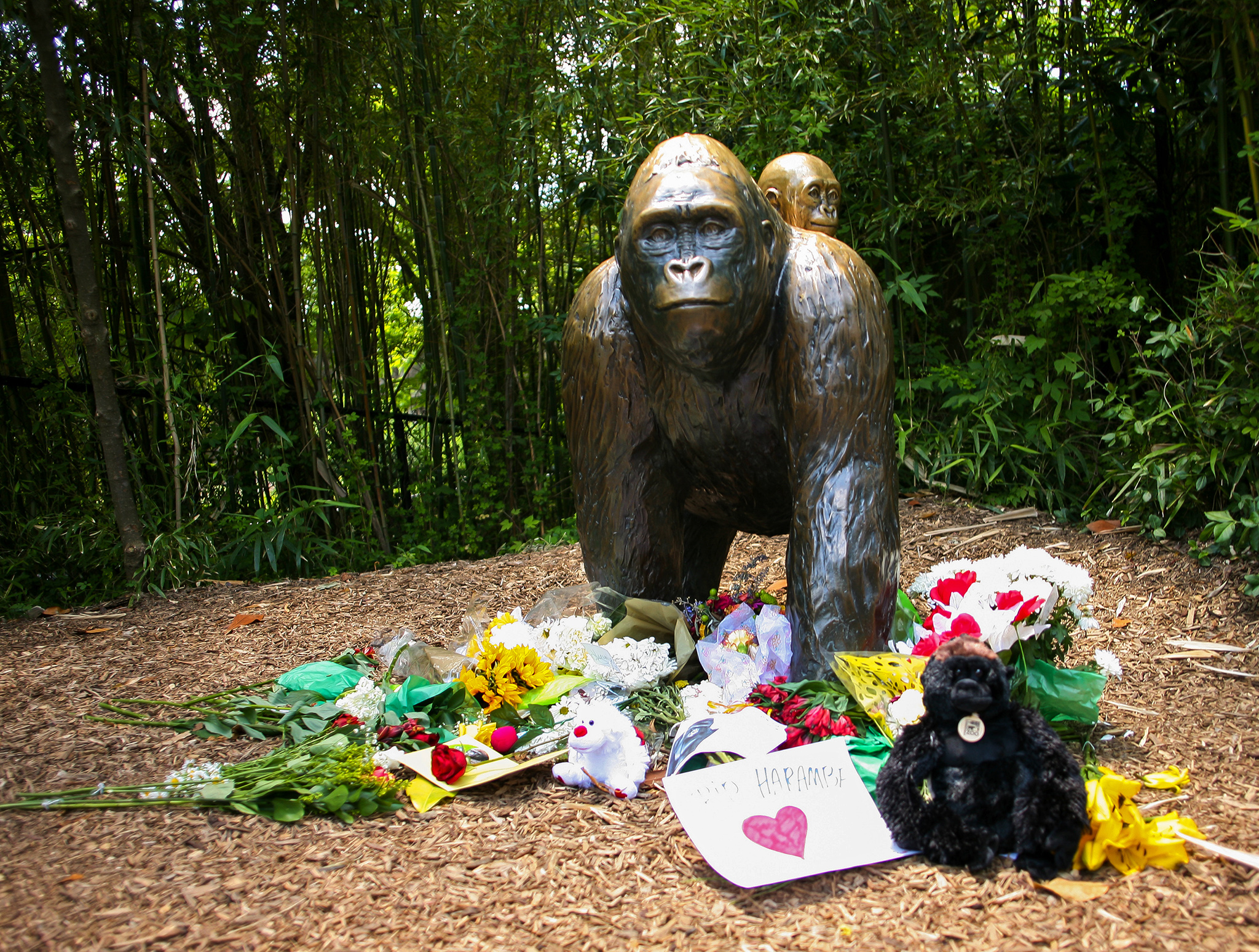You’ve likely seen your fair share of memes involving Harambe the gorilla: images that relegate his death to a glamourous source of amusement. These memes, and those who create and share them, make light of what happened to Harambe simply to have fun at the expense of his death. It’s wrong, and it exacerbates the zoo staff’s grief.
The story began when a child got into Harambe’s enclosure and encountered the gorilla. For the sake of guaranteeing the child’s safety, Cincinnati Zoo staff put down Harambe before he could do any harm to the child. Anaesthetic agents weren’t an optimal response, as staff were unsure if the drugs would activate in time.
The death of Harambe was deemed unfortunate — but the Internet saw it as an opportunity to make a new meme.
The memes initially spread as criticism of the child’s family, whom many found irresponsible for not watching their kid properly. However, these critiques were soon corrupted by people embedding meaningless, offensive phrases into them and drawing attention away from what happened to Harambe; people trying to be witty to gain attention.
Some use “3dicks out for Harambe.” Others praise Harambe because “he died for our sins,” and isn’t a regular gorilla. A few have even ignited racial controversies, by comparing retired Australian Aboriginal football player Adam Goodes to the gorilla, reinforcing racist stereotypes of his community.
Ultimately, Harambe was just an ordinary animal whose innocent life was taken because someone couldn’t keep an eye on their child.
Unfortunately, people have been blindly sharing memes without actually thinking about the significance of what happened. People bombarded the Cincinnati Zoo through social media with these memes and jokes until zoo director Thane Maynard had to address the problem.
“We are not amused […] Our zoo family is still healing,” Maynard told the Associated Press. “[T]he constant mention of Harambe makes moving forward more difficult for us.” The zoo’s social media accounts closed in August because of these jokes.
These jokes continue to resurrect talk of the incident, adding to the guilt that the zoo staff suffer. It revolves around dragging out pointless discussion of an animal’s death for an unreasonable amount of time. Would anyone do that to their own pets?
If not for the risk he posed to a child’s well-being, Harambe could have lived a happy life. While I believe that the zoo did what was best in the interest of saving their patron’s life, if the child was properly supervised and the barriers were more inaccessible to visitors, this situation wouldn’t have been created in the first place.
These memes were never funny in the first place, but absurdly enough, they have survived and grown. Yes, everything can be a meme, but there should be a basic boundary drawn in popular social media: we shouldn’t promote and glorify the pain of animals.
This meme has contributed nothing of value to anyone, and it hurts people’s feelings. The best thing we can do is stop sharing it.


“If not for the risk he posed to a child’s well-being, Harambe could have lived a happy life.”
Bull.
The zoo’s lack of physical security of the pen killed the gorilla. Just because they feel bad – well – that’s called outcomes. The meme’s exist and persist because of the hypocrisy – the only thing that was held accountable was the gorilla that was executed.
That’s why the jokes, the persistence, and the imprint into pop culture. You’re missing the whole point.
Which is why I said “[…], if the child was properly supervised and the barriers were more inaccessible to visitors, this situation wouldn’t have been created in the first place”. Both parents and the zoo had their own faults. Yes, the gorilla could done something wrong in that viral video. However, in the best interest of the zoo patrons, I believe that the action that the zoo had taken was a desperate measure. The zoo staffs are the ones who take care of the gorillas directly. They are the ones who know how the gorillas behave and emote. It is not usual to just take down a gorilla whom you have been taking care of for months.
I do agree that the meme started out as a reminder for the faults of both parents and the zoos but it was distorted into something rather vain. “Dicks out for Harambe”- What does that even mean? What “story” does it unfold?